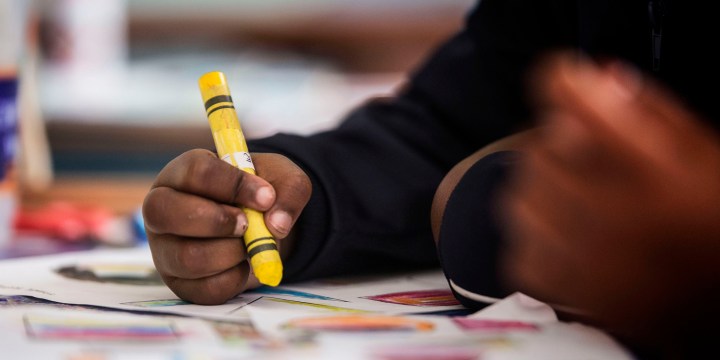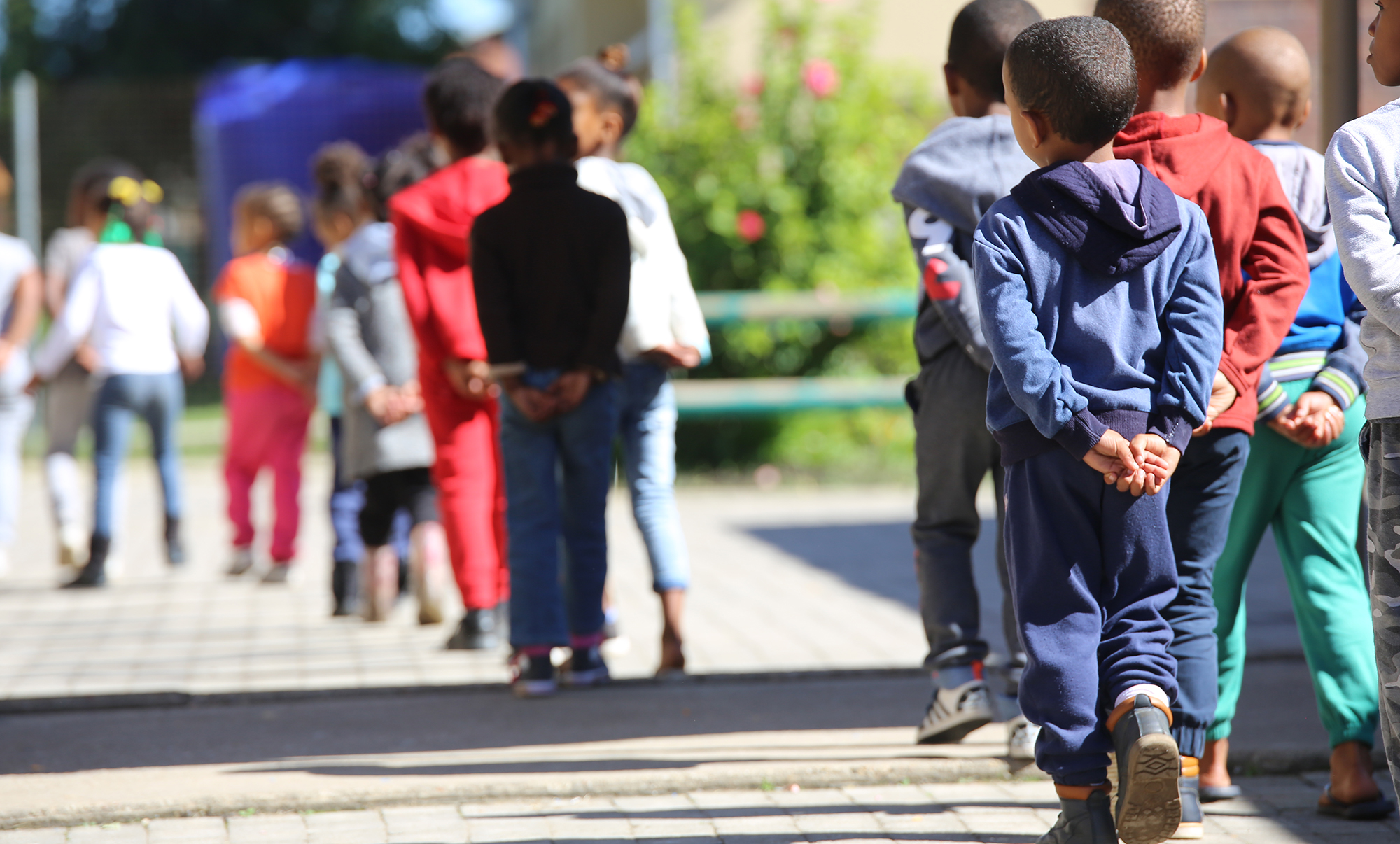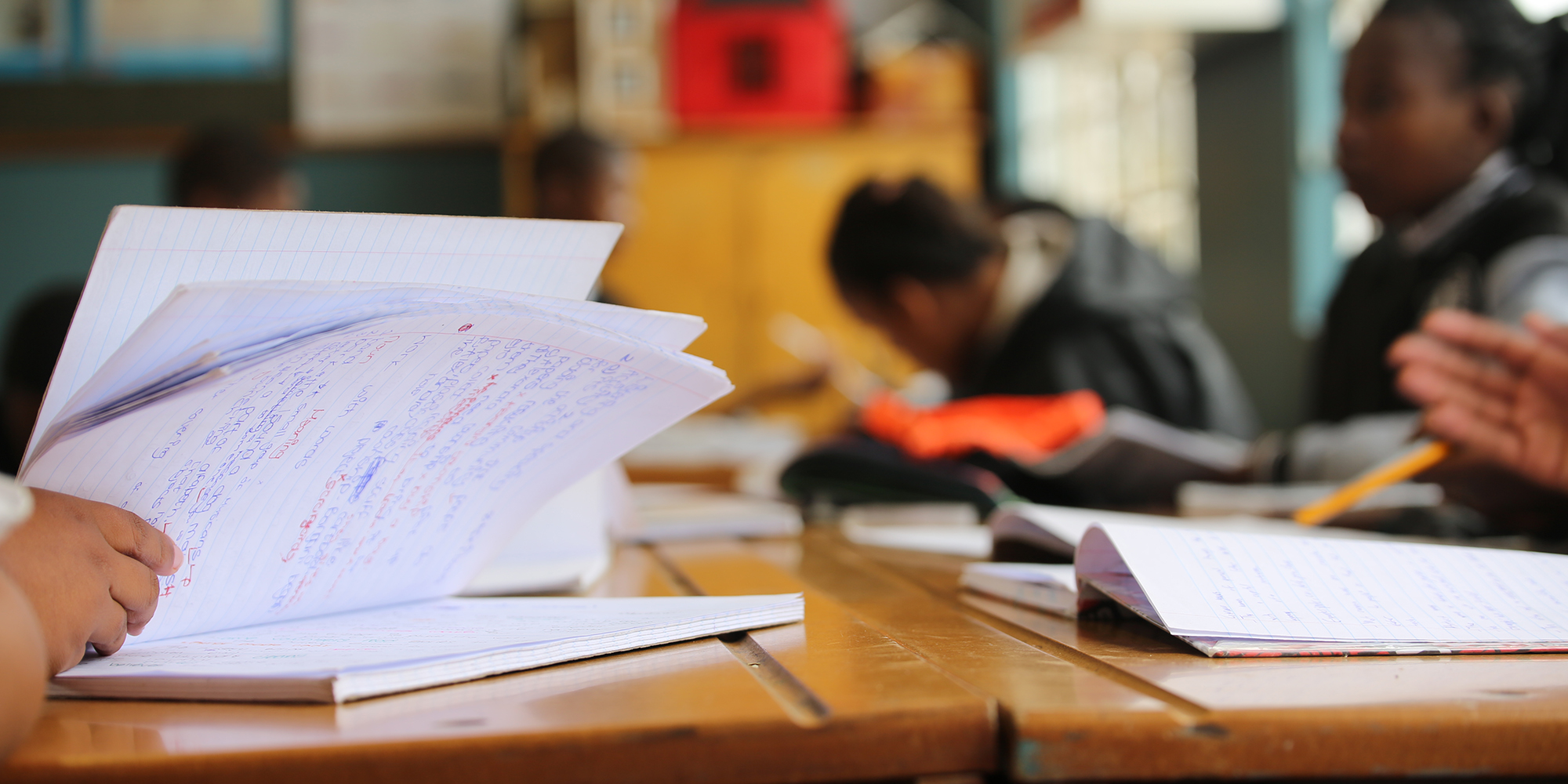SCHOOLING FOUNDATIONS OP-ED
We must fix early learning if we want to fix education — and abandon populist talk of corporal punishment

In South Africa, there is a national obsession with Grade 12 ‘matric’ results and universities. This is much like worrying about the fragility of the 12th storey of a building while largely ignoring the fact that the foundation is rotten.
This week is dedicated to child protection, with the official theme being “Let us protect children during Covid-19 and beyond”. As a result, Basil Manuel, executive director of the National Professional Teachers’ Organisation (Naptosa) has stressed: “Protecting children is everyone’s business”.
However, this business, especially for those in authority, should be to guarantee that children enjoy equal rights with the rest of humanity. Although not often acknowledged and frequently ignored, this is a legal requirement, both nationally and internationally; a fact particularly pertinent at this time in South Africa with growing calls for both the return of the death penalty and of corporal punishment. This again amounts to a focus on the symptoms of a malaise rather than considering the causes.
Over the past century, much lip service has been paid to guaranteeing the health and wellbeing of children. But today, certainly in legal terms, children’s rights have been clearly spelt out globally, and at least in principle, through national laws and ratified international agreements.
Gupta lawyers bow out as IDC’s R287m fight against Oakbay rolls into year five
Moves to guarantee the rights of children began with the League of Nations in 1924 and, over the following years, there have been a series of agreements culminating in the landmark 1949 Convention on the Rights of the Child. Adopted by the General Assembly of the United Nations, it is the most widely ratified human rights treaty in history, and it notes:
“The child shall have the right to freedom of expression; this right shall include freedom to seek, receive and impart information and ideas of all kinds, regardless of frontiers, either orally, in writing or in print, in the form of art, or through any other media of the child’s choice.”
This is the formal, legal, acknowledgement that children deserve the same rights as other human beings. A year after the transition to a non-racist parliamentary democracy, the government headed by Nelson Mandela signed up, affirming a call made at a world summit in 1990 to give children the first call on society’s resources.
In the following year, the South African Constitution and Bill of Rights were adopted. The Bill of Rights states: “A child’s best interests are of paramount importance in every matter concerning the child.”
This approach turned on its head the education policies codified and enforced after the apartheid state came formally into being in 1948. But so too did the policies drawn up by the ANC in exile. As a result, it was little wonder that there existed a high level of broad-based hope in the immediate post-apartheid period, especially among early years campaigners. But such hopes were largely dashed and the official reaction to the pandemic further crippled what existed of early childhood care and education, shutting down thousands of early childhood centres.
However, there were advances in the post-apartheid years, some coming via the courts. The strap, cane, ruler and even lengths of hosepipe had become very much part of the disciplinary regime in South African schools and the dropping of such punishment had been one of the main demands of the rebellious “1976 generation”. In 1995, the courts ruled that judicial flogging violated the constitutional rights of those sentenced. In the following year, the Schools Act fell into line and banned corporal punishment in schools.
But it took until September 2019 for the Constitutional Court to rule that all corporal punishment of children in South Africa is illegal. This ruling brought the country into line — at least in principle — with the international children’s rights treaties the government had already ratified. This is now being challenged in the wake of reports of increasing bullying, violence and threats against teachers by students.
Similar arguments persist in many other countries. According to the United Nations, more than half the countries that have signed up to the Convention on the Rights of the Child do not ban corporal punishment. So it is not surprising that one billion children — half the children worldwide — are estimated to suffer some form of violence each year.
At the same time, reputable studies have consistently shown that many of the “social ills” such as the destructive and anti-social behaviour now complained of in local schools, have their roots in the early, preschool years. Which is not to say that there is a direct cause-effect relationship; that an individual from a violent, uncaring and nutritionally wanting background cannot apparently overcome this: a comparison may be that of a beautiful stained-glass window that is shattered by a stone. It can be immaculately repaired, but the cracks will always show.
This is borne out by research that reveals clearly the link between experiences in the first six or seven years and outcomes throughout the rest of life. The reintroduction of corporal punishment would almost certainly worsen the situation.
In May 2016, for example, a 50-year study by two American universities (Michigan and Austin) concluded that “spanking is linked to aggression, antisocial behaviour, mental health problems, cognitive difficulties, low self-esteem, and a whole host of other negative outcomes”. In fact, the very outcomes that now result in calls domestically for even more brutal “spanking”.
The American study, involving more than 150,000 children, concluded that “there are no redeeming effects of corporal punishment”. At the same time, it is broadly agreed that the early years are crucial to the well-being of future teenagers and adults.
As American educationalist John Dewey once noted: “I have never been able to feel much optimism regarding the possibilities of higher education when it is built upon warped and weak foundations.” He was correct: if you build a house of whatever design or size, misuse the materials available and ignore the need for sound foundations, the structure is likely to be unstable and even dangerous. In many cases, if remedial action becomes necessary, it is usually time-consuming and expensive — and seldom quite as good as it might have been.
What the legally accepted framework acknowledges is that this applies to all of us: we all start out as babies, infants and children. Yet, the focus when it comes to arguments about improving the lot of the next generation tends to be on formal education — and usually on the upper grades.
In South Africa, there is a national obsession with Grade 12 “matric” results and universities. This is much like worrying about the fragility of the 12th storey of a building while largely ignoring the fact that the foundation is rotten (a dramatic practical example was provided in Miami last year). Yet no one will deny that anything built on weak or warped foundations is likely to have problems or even collapse.
A critical part of that foundation, for every adult, starts at conception. And, with very few exceptions when — and wherever — there is a birth, a baby, without instruction, will soon be gurgling and babbling; this young life does not have to be taught to use tongue and lips and vocal cords, to clench and unclench fingers; a baby is a bundle of learning, reaching out into the world. Properly nourished, cared for and spoken to, a baby, within two or three years, is a walking, talking, exploring and inquiring child, eager to develop innate abilities: the living foundation for the adult life to come.
This is a simple fact recognised across the world — and the centuries — by many educational theorists, practitioners and philosophers. From various points of view they have pointed out that the earliest years of the child are those that are most receptive to learning; that, almost sponge-like, young children absorb the often incredibly complex lessons of language and social behaviour. And how important this period is in terms of the adult future has been confirmed by a multitude of studies, especially over the past century.
But we continue to focus, almost obsessively, on problematic symptoms, giving our children, to paraphrase the poet, Phillip Larkin: all the faults we had and add some others, just for them. Yet, nationally and internationally, the legal framework already exists to combat the causes of so many of our woes. We do not have to “hand on misery that deepens like a coastal shelf”, so long as we recognise — and resolutely act —to combat the causes of our woes.
That should be the prime lesson this week — and be stressed continually into the coming years. DM
Barbara Bell and Terry Bell are currently working on a book promoting and dealing with some of the history of early childhood care and education.
[hearken id=”daily-maverick/9588″]























 Become an Insider
Become an Insider
Comments - Please login in order to comment.